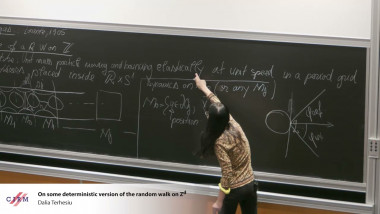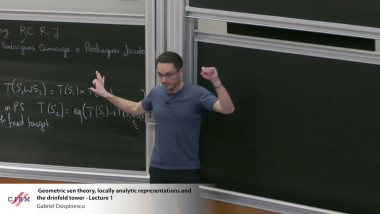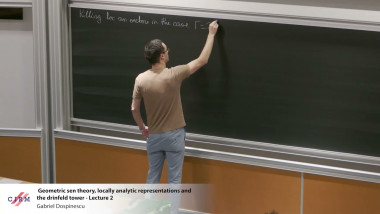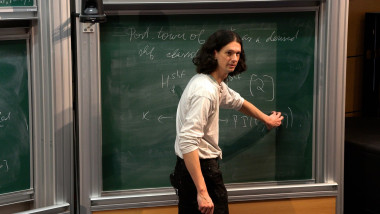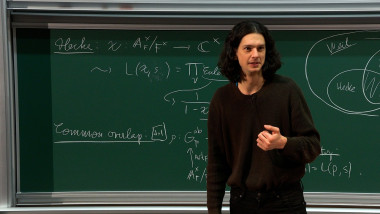Appears in collection : Arithmetic and Diophantine Geometry, via Ergodic Theory and o-minimality
The mixing conjecture was proposed by Venkatesh and myself 20 years ago and postulates that pair of CM-points multiplicatively connected equidistribute on products of
locally homogeneous space associated to forms of $PGL_2$.
It was established by Khayutin, for sequences of fundamental discriminant splitting two given primes and under the assumption that there is no Landau-siegel zero,
using measure classification results of Einsieldler-Lindenstrauss. There are currently promising efforts by Blomer, Brumley and Radziwill to remove the splitting conditions and weaken the Landau-Siegel
zero assumption using purely methods from analytic number theory.
The split version (for the split quadratic algebra) concerns the distribution of multiplicatively pairs of Hecke points of large modulus.
It has now been established unconditionally by Blomer and myself in the prime modulus case and by Assing in general.
In this lecture, I will discuss the proof of (of the split version of) the mixing conjecture as well as some recent application
of the methods involved to the generation of Hecke fields by algebraic L-values (joint work with Blomer, Burungale and Min).
